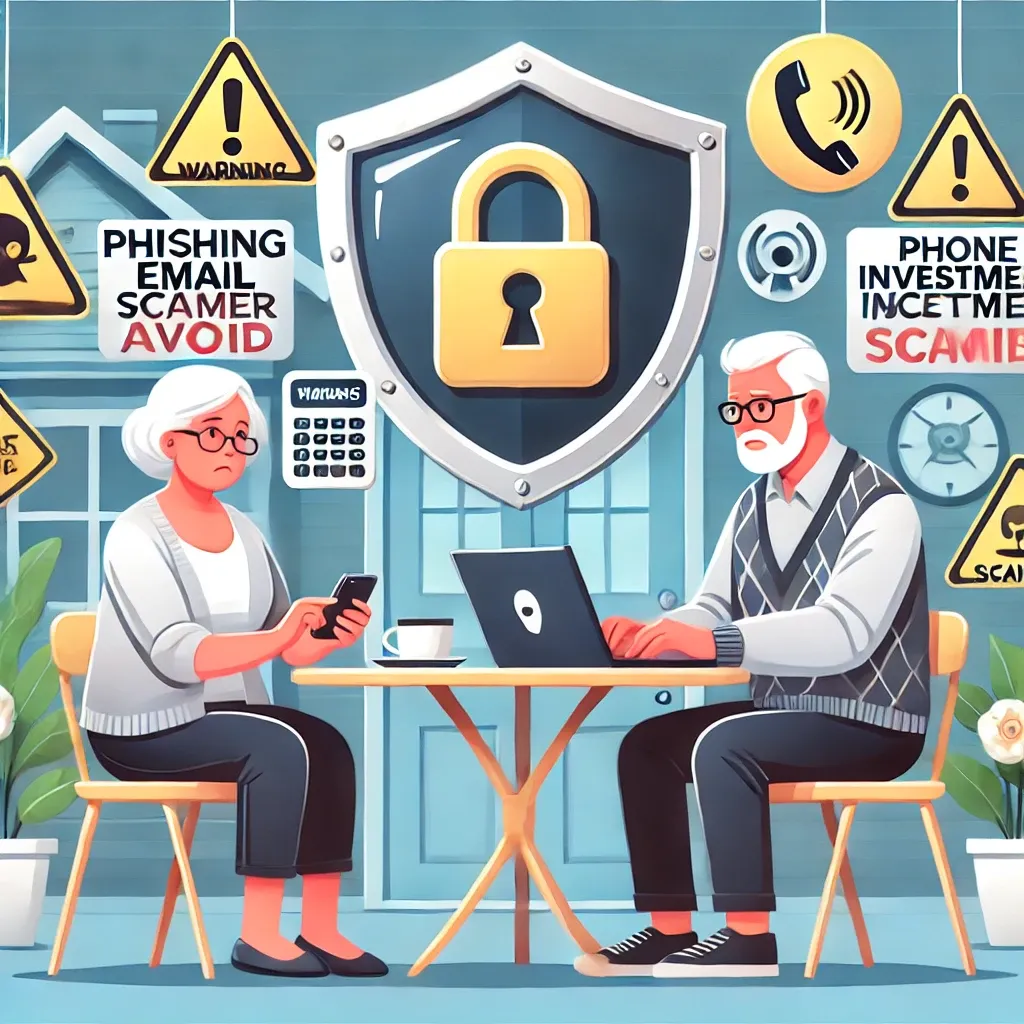10 Alarming Scams That Target Seniors – And How to Stay Safe
Learn about the 10 alarming scams that target seniors and discover how to stay safe from fraudsters preying on vulnerable older adults.

As people age, they often become prime targets for a wide array of scams that seek to exploit their vulnerability and trust. Seniors are particularly attractive to scammers due to factors such as accumulated wealth, polite demeanor, and sometimes, a lack of familiarity with rapidly advancing technology. In this article, we will explore ten alarming scams that target seniors and provide comprehensive advice on how to stay safe.
1. Medicare and Health Insurance Scams
Medicare scams are among the most prevalent scams targeting seniors. Scammers often pose as Medicare representatives and request personal information such as Social Security numbers or bank account details. They may also claim to offer free medical equipment in exchange for a Medicare number. To stay safe, seniors should remember that Medicare will never contact them for personal information or offer unsolicited services. It is crucial to verify any communication by contacting Medicare directly using information from official sources.
For more information, visit Medicare.gov.
2. Social Security Scams
Social Security scams involve fraudsters pretending to be from the Social Security Administration (SSA). They may claim that there is an issue with the recipient's account or threaten suspension of benefits unless personal information is provided. The SSA never threatens individuals or demands immediate payment over the phone. Seniors should hang up on suspicious calls and report them to the SSA's Office of the Inspector General.
Find more details at SSA.gov.
3. Telemarketing Scams
Telemarketing scams often involve callers selling fake products or services. Seniors might be offered prizes, vacation packages, or investments that sound too good to be true. A common tactic is creating a sense of urgency to pressure seniors into making hasty decisions. To protect themselves, seniors should never provide personal information over the phone and take time to verify offers through reputable sources.
Learn more about telemarketing scams at FTC.gov.
4. Internet and Email Scams
Internet scams targeting seniors often come in the form of phishing emails or pop-up ads that install malware. These scams aim to steal personal information or money. Seniors should use strong, unique passwords, be wary of unsolicited emails, and avoid clicking on unknown links. Installing reliable antivirus software can also help protect against such threats.
For further infoLearn about the 10 alarming scams that target seniors and discover how to stay safe from fraudsters preying on vulnerable older adults.
5. Investment Scams
Seniors are often targeted by investment scams that promise high returns with little risk. These scams can take the form of Ponzi schemes, fake investment seminars, or unregistered securities. Seniors should be skeptical of any investment that guarantees high returns, and they should consult with a trusted financial advisor before investing. Checking with the Securities and Exchange Commission (SEC) can also help verify the legitimacy of an investment.
Visit SEC.gov for more information.
6. Charity Scams
Charity scams exploit seniors' generosity by posing as legitimate charitable organizations. Scammers may contact seniors after a natural disaster or during the holiday season, asking for donations. Seniors should research charities on sites like Charity Navigator and avoid making donations over the phone. It's safer to donate directly through a charity's official website.
For more on charity scams, see FTC Charity Scams.
7. Grandparent Scams
In grandparent scams, fraudsters pose as a grandchild in distress, often claiming to be in jail or stranded in a foreign country. They request money urgently to resolve the issue. Seniors should confirm the whereabouts of their grandchildren by calling them directly or checking with family members before sending any money.
Read more at FBI Grandparent Scams.
8. Sweepstakes and Lottery Scams
Seniors might receive calls or letters claiming they've won a sweepstakes or lottery, but must pay a fee to collect their winnings. Legitimate lotteries do not require upfront payments. Seniors should be cautious of unsolicited notifications and should not send money to claim supposed prizes.
For additional information, visit USA.gov Scams.
9. Home Repair Scams
Home repair scams involve contractors who offer services at an unusually low price, demand upfront payment, and then disappear without completing the work. Seniors should avoid hiring contractors who solicit door-to-door and should seek recommendations from trusted friends or family. It's also wise to get multiple quotes and verify the contractor's credentials.
See more about avoiding these scams at FTC Home Repair Scams.
10. Romance Scams
Romance scams target seniors through online dating platforms, where scammers build a relationship with the victim before asking for money. These scams can be emotionally devastating and financially draining. Seniors should be wary of individuals who profess love quickly, avoid meeting in person, or request financial assistance.
For more on romance scams, see FBI Romance Scams.
Staying Safe: Tips and Resources
To protect themselves from these alarming scams, seniors should adopt several key practices. Firstly, they should always verify the identity of anyone contacting them unsolicited, whether by phone, email, or in person. Using official contact information from trustworthy sources to confirm claims can prevent falling victim to scams.
Additionally, maintaining privacy and safeguarding personal information is crucial. Seniors should never share sensitive information like Social Security numbers, bank details, or passwords unless absolutely certain of the recipient's identity and legitimacy.
Education is another powerful tool in preventing scams. Seniors should stay informed about the latest scam tactics and share information with peers to raise awareness within their community. Attending workshops or reading trusted publications can provide valuable insights into recognizing and avoiding scams.
Lastly, reporting scams is vital for both personal protection and community safety. Seniors should report suspicious activity to local authorities or consumer protection agencies, such as the Federal Trade Commission (FTC) or the Better Business Bureau (BBB). This not only helps law enforcement track and combat scams but also protects others from similar threats.


